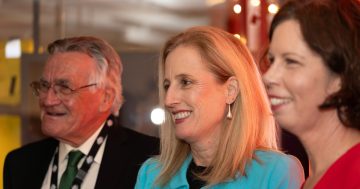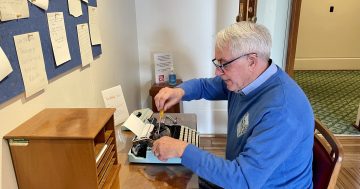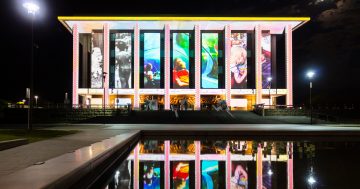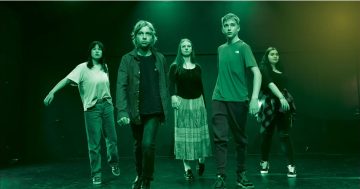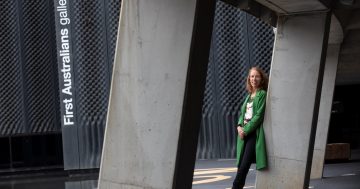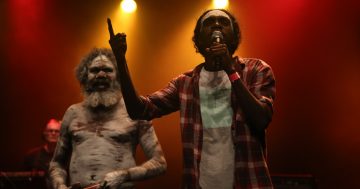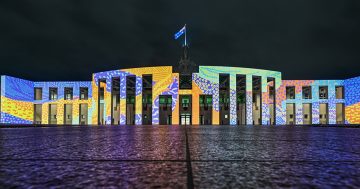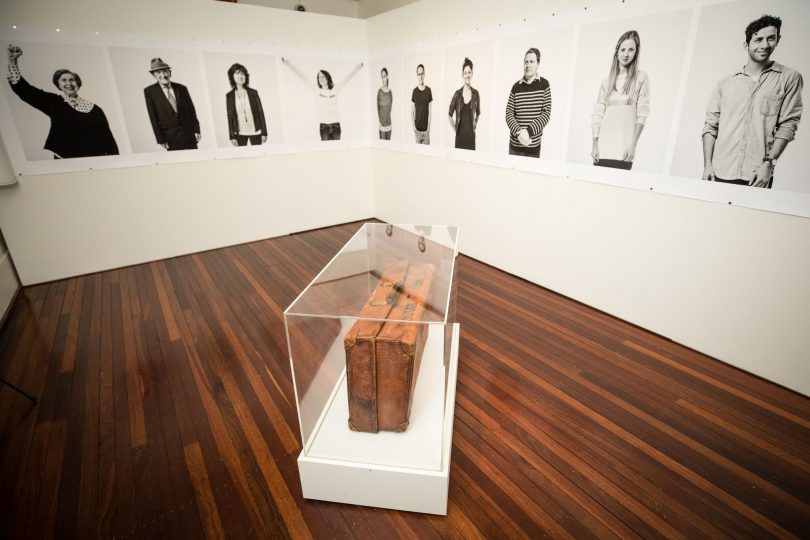
Linda Wachtel’s art work includes photographs of Holocaust survivors Adalek and Marysia Kohn’s family. Photos: Supplied.
Can you imagine receiving a gift that would change your life? Out of the rubble and destruction, from hopelessness and grief comes a second chance in a new country. And it is not just you, but your whole family who will be transformed by that gift.
A new exhibition at the Museum of Australian Democracy at Old Parliament House explores migration as a gift – to those escaping the destruction of war and to the nation that accepted them.
The Gift: Art, Artefacts, and Arrivals tells five stories; one, a child migrant from Britain, and four others Holocaust survivors given a second chance at life after the horrors of the Nazi death camps.
In 1949, eight-year-old Isobel Saxelby was given gifts when she arrived in Australia, the 100,000th postwar British immigrant. She was given a toy koala, a book about Australia and sprigs of wattle; symbols of their new home and of what Australia had to offer them.
The works of contemporary artists Lousje Skala, Hedy Ritterman, Linde Ivimey and Linda Wachtel, all family members of Holocaust survivors who immigrated to Australia at the end of World War II, tell four different stories.
Their works, although tinged with a sense of loss and poignancy, also speak of the gift; the gift of a new life, the gifts that pass between generations, and the gifts that those generations can give to Australia.
The message is as simple as a suitcase full of nappies and as poignant as a sacred candlestick rescued from the ashes of war.
They have collaborated with migrants who came through the Holocaust to make artworks that talk about suffering, joy and family in a way that relates to all migration. It is a two-way process: migrants bring with them skills, culture, and experiences to enrich this country and they receive the gift of freedom and hope.
Among the works is a belt that survived three concentration camps, woven bone figures of twins separated forever at Auschwitz and a joyous scroll of family portraits, descendants of two determined migrants who went through hell. At the front of the exhibition sits a much loved and well-worn koala called Kookie, a gift from Arthur Calwell himself, the patron saint of the post-war migrants.
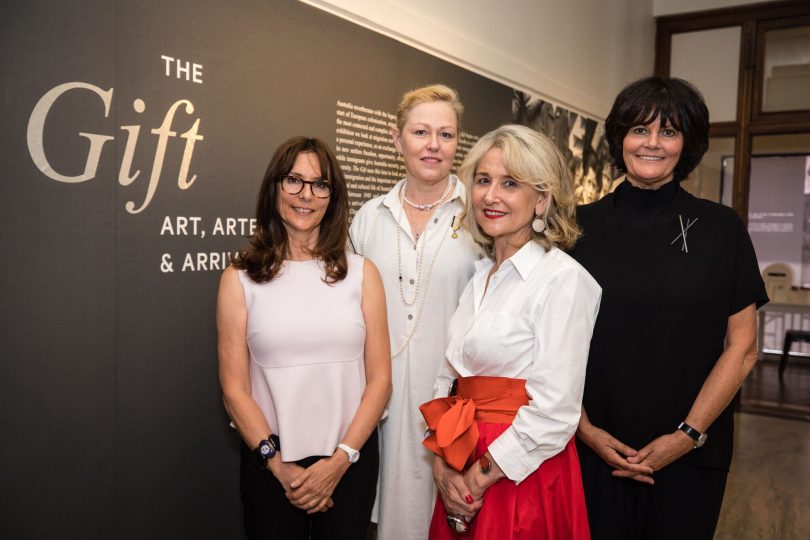
The four artists at the MoAD exhibition: Hedy Ritterman, Linde Ivimy, Lousje Skala and Linda Wachtel.
Linda Wachtel, who spent two hours photographing Holocaust survivors Adalek and Marysia Kohn’s family, says that art can have a profound impact on the way people view the world.
“In a museum context, it gives people a chance to look at issues without being force-fed facts, figures, dogma or slogans. This story, and stories like it, might help reduce the fear people have of the unknown, and people coming to this country from backgrounds they aren’t familiar with,” she said.
Museum Director Daryl Karp says that using contemporary art to talk about migration allowed the museum to bring contentious issues back to the personal.
“This exhibition does what art does best – telling stories to change minds and open hearts. The idea of combining history and art through the notion of a gift was a perfect opportunity to make a small, beautifully formed creative experience that punches above its weight. I’m really proud of that,” he said.
Noting that The Gift: Art, Artefacts and Arrivals is set in the building where decisions ranging from welcoming Vietnamese boat people to enforcing the White Australia policy were made, Ms Karp says that MoAD’s role is to be a place for conversations about big ideas of today.
“The museum is uniquely positioned to start a dialogue about the kind of Australia we want to be, where we come from and where we want to head. And we are trying to do it in a way that has real humanity,” she said.
So what would you like to say to a modern migrant? Visitors have been writing, drawing and posting messages on postcards for new Australian migrants. There are warm welcomes, messages connecting with family stories, and from 16-year-old Edward, these words:
“You will always be welcome, you will always be loved. Our nation was built on migration, this will never change”.
For more information visit www.moadoph.gov.au












